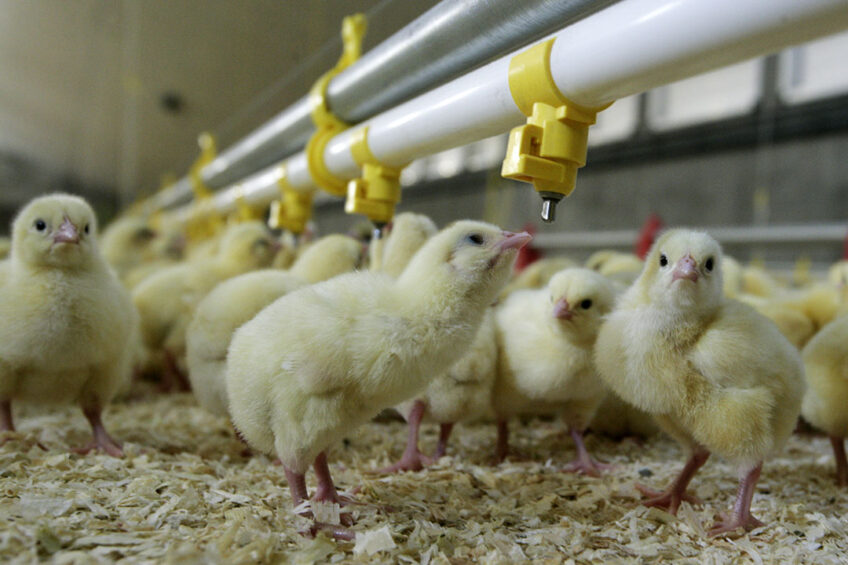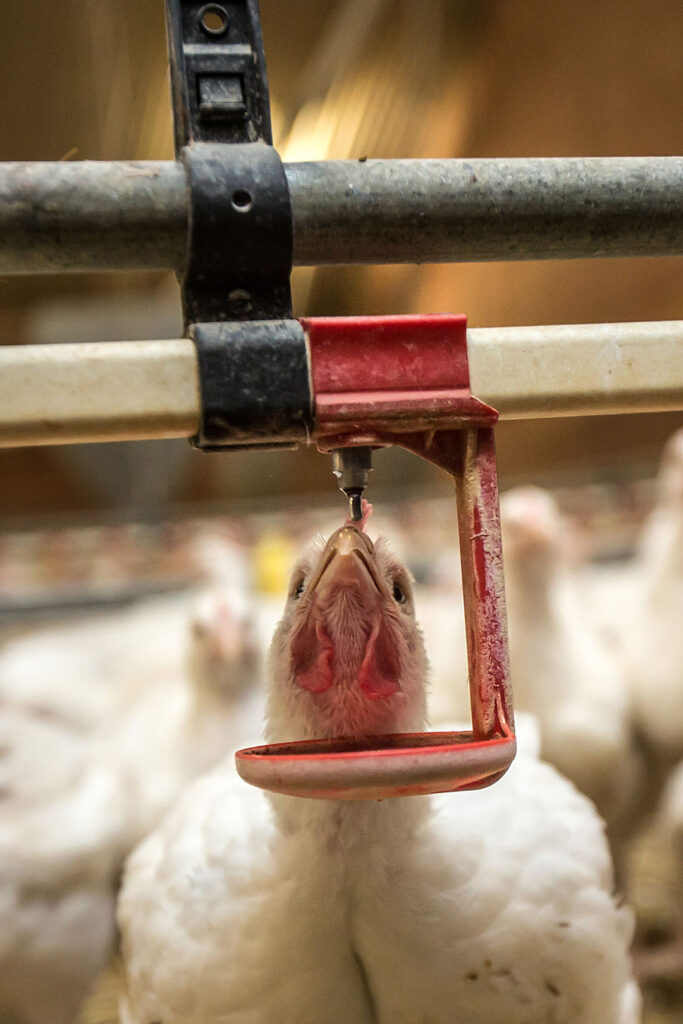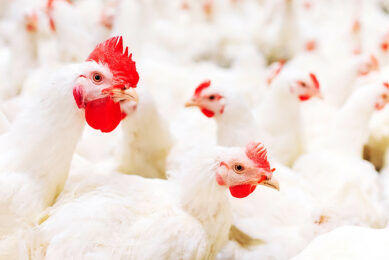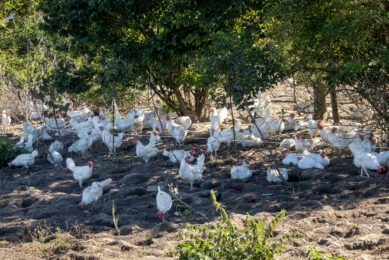In the current climate, feed efficiency has never been more important

With recent increasingly high production costs, it’s more important than ever to improve feed efficiency. Optimising the gut health of poultry is of great importance.
Running a profitable poultry production system depends on many factors and has become more challenging with recent surging production costs. Feed prices have risen in 2022 far above historical prices. These are affected by many factors, including increasing energy costs and the ongoing conflict in Ukraine. Therefore, it is more important now than ever to improve the feed efficiency of the birds to get the most out of the feed that is put in front of them.
Optimal gut health – with well-formed villi, large surface area and tight junctions – is essential for a bird to efficiently digest and absorb nutrients from its diet. However, the gut is the first point of entry for most pathogens, which cause damage and reduce nutrient absorption, impairing performance and feed efficiency. Therefore, helping the bird maintain good gut health and its ability to defend itself from pathogens will minimise disruption to production caused by disease challenges.

Optimal gut health
The ‘Seed, Feed and Weed’ programme helps achieve optimal gut health: seeding the gut with favourable organisms, feeding this favourable environment and weeding out unfavourable organisms. While the weed component, using Actigen in the feed, is crucial for binding pathogens and developing microbial diversity, which acts as a protective barrier helping to control pathogens, the feed component must not be forgotten. To maintain favourable microbial diversity, we must make the environment attractive for beneficial bacteria. This can be done by reducing the pH of the gut. Having the correct acidic pH within the bird’s gut promotes the growth of beneficial bacteria, such as lactobacilli, which like an acidic environment. In addition, lowering the pH to 5 has a bacteriostatic effect (i.e., it prevents the growth of bacteria) on some pathogenic bacteria, including E. coli and Salmonella. Lowering the pH of the water can be achieved by adding buffered organic acidifiers such as Acid-Pak to the drinking water, which favours the growth of beneficial gut bacteria and inhibits the growth of harmful or undesirable species.
Good water quality is essential
When adding anything through the water, we first need to consider water quality. Birds consume 1.6 to 2 times as much water as food, and feed intake declines if water intake is limited. Good water quality is essential for bird health, welfare and performance because water is critical for digestion and absorption of nutrients from the feed. Water is, however, also one of the routes that can transfer pathogens throughout the poultry house. Therefore, water quality should be measured regularly for pH, mineral content and microbial load. Poor water management can lead to a build-up of microbial contamination and reduced water intake, bird performance, nipple flow rate and effectiveness of medication and vaccination.
Achieving zero CFU/ml of bacteria is desirable. However, contamination of the water in the drinker lines is common. Biofilms result from bacterial colonies that adhere to the inner walls of water lines. They produce a film that other microbes can attach to, some of which are pathogens. The biofilm can protect bacteria from disinfectants and lead to reduced water flow through the pipes. Lowering the water pH to 5 is advantageous as it promotes the growth of beneficial bacteria and suppresses the growth of coliforms and pathogens. Reducing the water pH can be achieved by adding a buffered weak organic acidifier such as Acid-Pak to the water. This will effectively alter the pH without over-acidifying the water, which can hinder water intake and damage equipment.
Lowering the pH
The technology is designed to help “feed the gut.” When added to water, it helps to lower the pH and enhance the intestinal environment to inhibit unfavourable bacteria while allowing beneficial organisms to prosper. Reducing the gut pH can also maintain optimum conditions for digestion and absorption. Having the correct pH level in the different parts of the intestinal tract increases enzyme activity. Therefore, organic acids acidifiers are thought to increase the efficiency of digestive enzymes by lowering the intestinal pH, as well as increasing epithelial cell proliferation, villus height and, in turn, absorptive capacity. Acidifying the water can also stimulate water intake, aiding feed intake and improving growth.
Electrolytes help to maintain balance
Acid-Pak also contains electrolytes – minerals that carry a positive or negative charge. Electrolytes can help maintain ion balance in intra and extracellular fluid and are vital for several processes that keep the bird’s body functioning correctly. Electrolytes are important in the young bird when the gut is still developing and in heat-stressed birds due to intestinal barrier disruption, resulting in increased intestinal permeability. Correct electrolyte balance improves performance, especially in relation to heat stress, which negatively impacts production performance and poultry health status.
Ideally, a buffered organic acid would be added to the water throughout the production cycle; however, this may not be feasible due to cost. Therefore, its use can be targeted for periods of stress when the birds most need it. Stress on the bird can be caused by many factors, including feed changes, thinning, moving environment, high or low environmental temperature, pathogen challenge, antibiotic use, etc. These stressors can cause dysbacteriosis in the birds – an imbalance in microbial diversity – resulting in poor nutrient absorption, feed efficiency and performance. Adding organic acids to the water to improve gut microbiota balance and diversity is especially important to mitigate the adverse effects of stress on the bird and improve feed efficiency.
Increasing feed efficiency will help make the poultry production system more economically and environmentally sustainable. To achieve this, we need optimal gut health, which relies on a diverse and balanced microbiome. The ‘Seed, Feed and Weed’ programme can help achieve this and thus enhance gut health, which can improve nutrient digestion and absorption, performance and welfare.











